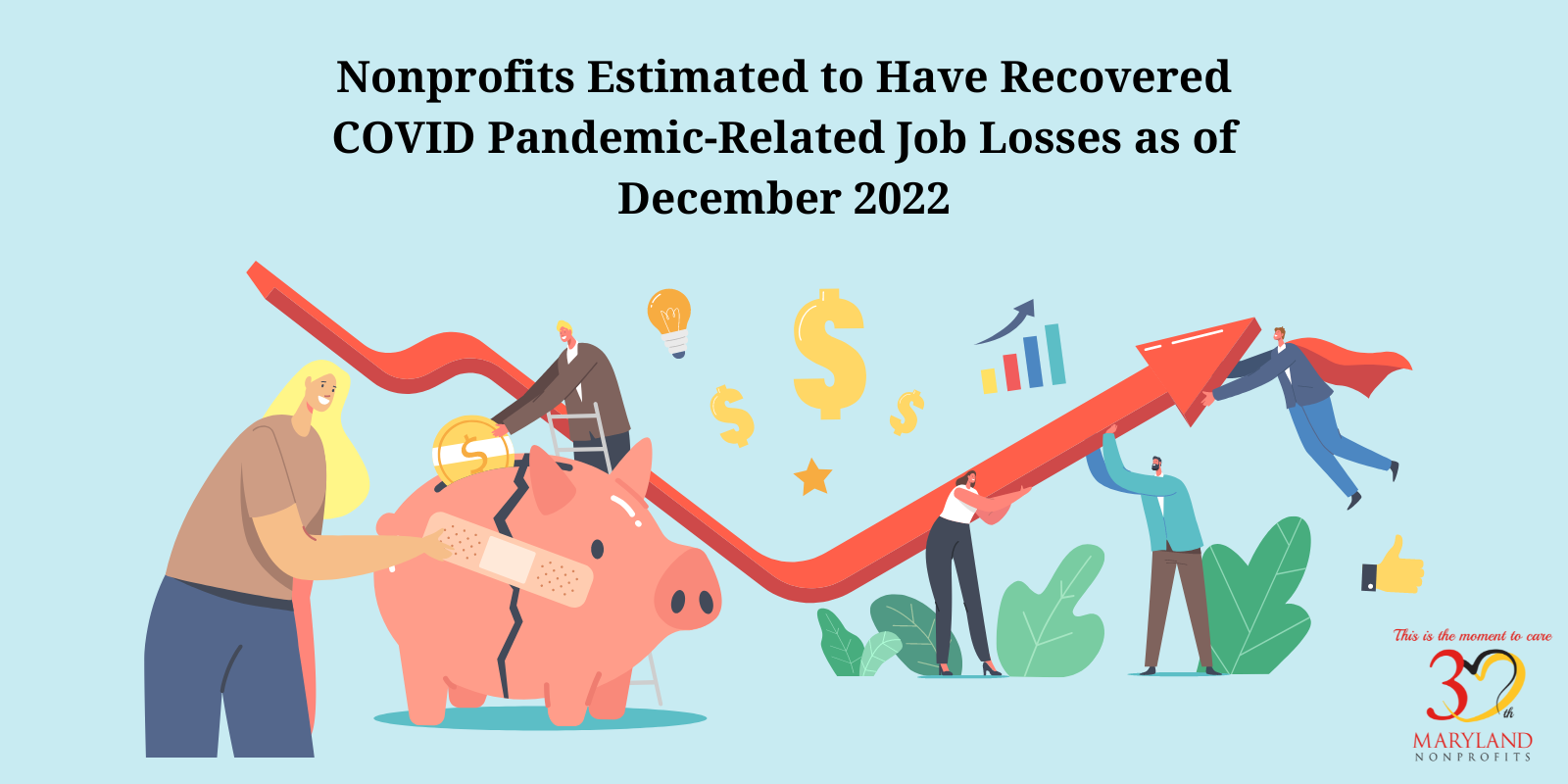The George Mason University – Nonprofit Employment Data Project Briefing #1, authored by Chelsea L. Newhouse with Alan J. Abramson, Stefan Toepler, and Mirae Kim conveys an overall hopeful message: “Nonprofit Employment Estimated to Have Recovered from COVID Pandemic-Related Losses as of December 2022.” Ms. Newhouse, currently a Senior Program Manager with the East-West Management Institute and GMU-NED Research Consultant, managed the JHU-NED Project from 2015-2022 and has served as a Maryland Nonprofits Associate Consultant since 2018.
According to the report, when compared to the latest Bureau of Labor Statistics (BLS) data from 2017, as of the end of 2022, nonprofits in the U.S. are estimated to have added 107,000 jobs, an increase of .86% over the 12.5 million workers employed by these institutions in 2017. These changes were driven by a 1.2% increase in jobs in health care service nonprofits (84,000 additional workers), a 2.3% increase in educational services jobs (46,000 workers), and a 2.3% in social services jobs (37,700 workers). Unfortunately, the news is not universally positive. Jobs in arts, entertainment, and recreational nonprofits remain down from their 2017 level by 7%, or 29,000 workers, and religious, grantmaking, civic, and professional institutions employ 12.6% fewer workers than they did in 2017, which translates to just under 103,000 jobs. Within the healthcare sector as well, the recovery has been uneven—while jobs in ambulatory health care services increased by 5.3% and hospital-based jobs by 0.3%, nursing and residential care facilities have struggled to re-staff, with over 105,000 jobs still missing, a decrease in 9% versus 2017 employment levels.
While this news is positive, the report notes that these are estimates based on the broader private sector recovery and the assumption that nonprofits have had the flexibility to support an equally robust re-staffing cycle—an assumption that may or may not bear out. Because the most recent BLS nonprofit employment data are for 2017, and new data will not be released by BLS until 2024, we may not be able to more fully understand the long-term impacts of the COVID-19 pandemic on the nonprofit workforce until these data are in hand.
However, there is additional positive news on this front—possibly motivated by national support for the Nonprofit Strength and Partnership Act of 2022, Congress has included $9 million for the BLS in the Consolidated Appropriations Act, 2023 with the House Committee on Appropriations reporting its intended use for the inclusion of nonprofit organizations as a distinct category of employer in Quarterly Census of Employment and Wages (QCEW) reports. If followed, this will enable releases of these data on a quarterly basis, bringing the nonprofit sector’s role in the U.S. economy more clearly into view, and providing sector advocates like Maryland Nonprofits with up-to-date data on the economic impact of the nonprofit sector.
Read the George Mason University – Nonprofit Employment Data Project (GMU-NED) January 2023 report here.


